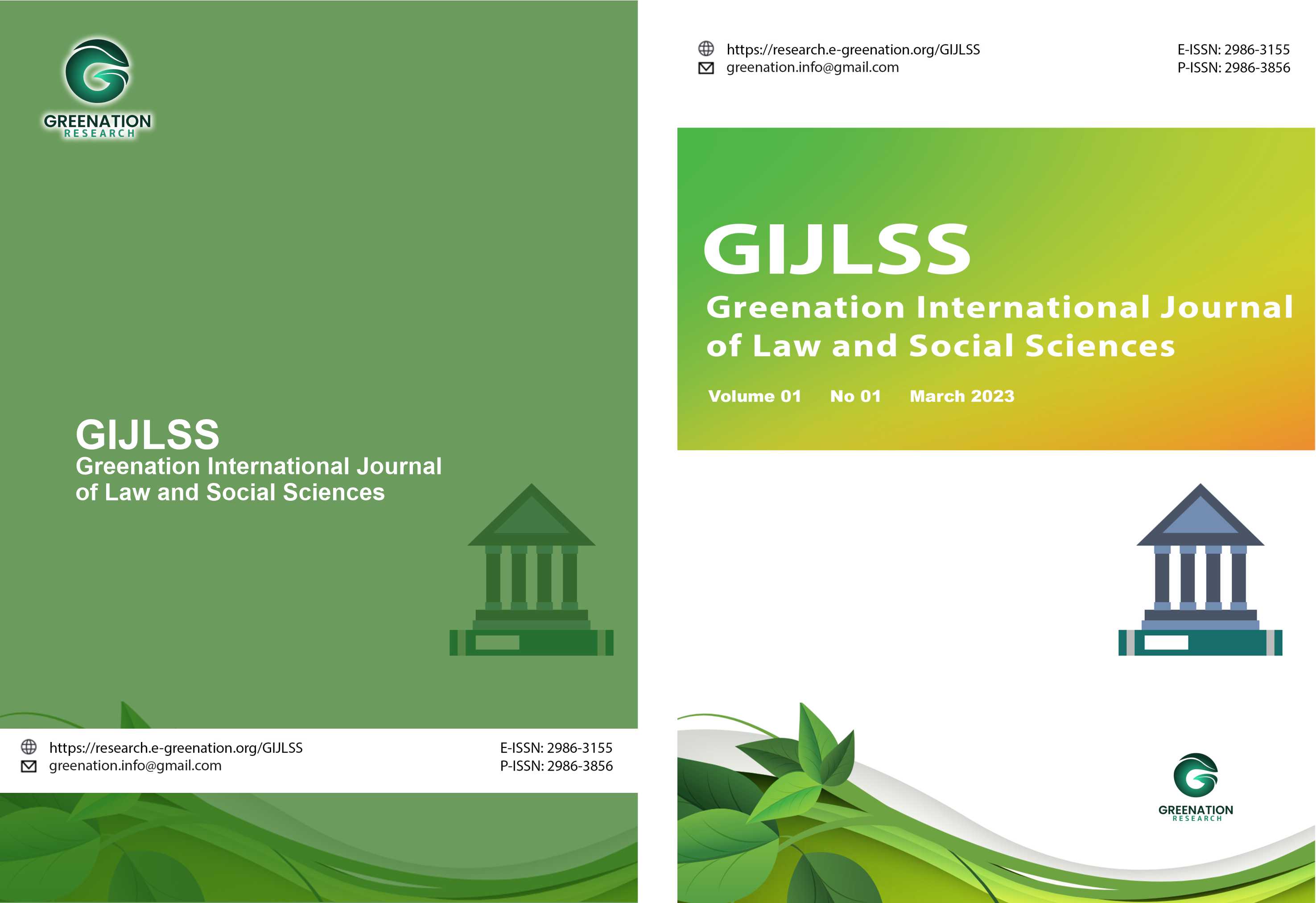Optimizing the Role of Notaries in Increasing Legal Certainty and Consumer Protection in Electronic Commerce Transactions
DOI:
https://doi.org/10.38035/gijlss.v3i2.407Keywords:
Notary, Consumer Protection, Electronic CommerceAbstract
The rapid development of electronic commerce (e-commerce) demands more optimal legal protection for consumers, especially in terms of legal certainty, transaction validity, and dispute resolution. However, the role of notaries in protecting e-commerce consumers is still ineffective due to limited regulations and the less-than-optimal implementation of digital notaries (cyber notaries). The study aims to analyze the role of notaries in protecting consumers in electronic-based commerce using legal research methods that combine conceptual and comparative approaches, secondary data analysis, and focus group discussions with stakeholders. The study results reveal that notaries have four primary roles in the e-commerce ecosystem, namely providing legal education to consumers, facilitating the creation of legally valid electronic agreements, protecting consumer personal data, and acting as mediators in resolving digital transaction disputes. The research implies that strengthening the role of notaries in e-commerce can increase consumer trust in digital transactions and strengthen the position of notaries as public officials who play a role in ensuring legal certainty in the digital economy. Therefore, policy reforms are needed that support the empowerment of notaries in electronic commerce to produce a safer and more trusted e-commerce ecosystem.
References
Abdullah, N. (2017). Kedudukan Dan Kewenangan Notaris Dalam Membuat Akta Otentik. Jurnal Akta, 655-664.
AK, K. E. (2023). Konsep Dan Karakteristik Penegakan Hukum Perlindungan Konsumen Ditinjau Dari Undang-Undang No. 8 Tahun 1999. Jurnal Ilmiah Wahana Pendidikan , 417-428.
Antoine, R. A. (2025). Penyalahgunaan Data Pribadi dalam Teknologi Transaksi Digital di Industri Perbankan Digital (Studi Kasus PT. Bank Syariah Indonesia). Jurnal Multidisiplin Ilmu Akademik, 316-327.
Avriyanti, S. (2020). Peran e-commerce untuk meningkatkan keunggulan kompetitif di era industri 4.0 (studi pada ukm yang terdaftar pada dinas koperasi, usaha kecil dan menengah kabupaten tabalong). PubBis: Jurnal Pemikiran Dan Penelitian Administrasi Publik Dan Administrasi Bisnis, 83-99.
Bahri, S. (2019). Kewenangan Notaris Dalam Mensertifikasi Transaksi Elektronik Dalam Rangka Cyber Notary. Repertorium: Jurnal Ilmiah Hukum Kenotariatan, 142-157.
Fitriono, R. A. (2023). Kebijakan formulasi hukum pidana dalam melindungi transaksi e-commerce di Indonesia. Jakarta: Penerbit NEM.
Harun, R. S. (2019). Implementasi Asas Itikad Baik Dalam Perjanjian Transaksi Jual Beli Online. Jurnal Legalitas, 94-103.
Irawan, A. (2022). Eksistensi Aspek Teknologi Dalam Pembuatan Akta Autentik Secara Elektronik Pada Pengaturan Jabatan Notaris Di Era Industri 5.0. COMSERVA , 1501-1521.
Irianti, F. (2024). Kekuatan Hukum Pembuktian Tanda Tangan Elektronik (Digital Signature) Dalam Surat-Surat Perjanjian Pemerintah. Journal of Lex Philosophy (JLP), 2117-2136.
Jaya, I. W. (2017). Pertanggungjawaban Notaris Berkenaan dengan Kebenaran Substansi Akta Otentik. Rechtidee, 267-285.
Mufrihah, W. M. (2024). Transformasi Hukum Dagang Internasional Di Era Teknologi Blockchain Dan Cryptocurrency. Ikraith-Ekonomika, 382-396.
Nasution, M. F. (2025). Perlindungan Hukum bagi Konsumen dalam Transaksi E-Commerce Berdasarkan Undang-Undang Perlindungan Konsumen. PESHUM: Jurnal Pendidikan, Sosial dan Humaniora, 1931-1938.
Paryadi, D. (2018). Pengawasan E Commerce Dalam Undang-Undang Perdagangan Dan Undang-Undang Perlindungan Konsumen. Jurnal Hukum & Pembangunan, 651-669.
Pelapu, I. J. (2024). KEPASTIAN HUKUM PENGGUNAAN TANDA TANGAN ELEKTRONIK DALAM AKTA NOTARIS. LEX PRIVATUM .
Permana, N. K. (2025). PERLINDUNGAN HUKUM TERHADAP KONSUMEN ATAS KETIDAKSESUAIAN SPESIFIKASI KENDARAAN BERMOTOR MENURUT UNDANG-UNDANG NO. 8 TAHUN 1999 TENTANG PERLINDUNGAN KONSUMEN. COURT REVIEW: Jurnal Penelitian Hukum , 115-129.
Pribadi, I. (2018). Legalitas Alat Bukti Elektronik Dalam Sistem Peradilan Pidana. Lex Renaissance .
Ramli, T. S. (2020). Aspek hukum platform e-commerce dalam era transformasi digital. Jurnal Studi Komunikasi Dan Media , 119-136.
Riansyah, R. M. (2024). Perbandingan Profesi Notaris dan Implementasi Jurnal Notaris di Negara Bagian New York dan Protokol Notaris di Indonesia dalam Era Reformasi Teknologi. PALAR (Pakuan Law review), 43-66.
Rosadi, A. G. (2020). Tanggung jawab notaris dalam sengketa para pihak terkait akta Perjanjian Pengikatan Jual Beli (PPJB) yang Dibuatnya. JCH (Jurnal Cendekia Hukum), 243-259.
Sugiarti, I. (2022). Kepastian Hukum Terhadap Penerapan Dan Pemanfaatan Konsep Cyber Notary Di Indonesia. Officium Notarium, 13-20.
Wardhani, S. A. (2020). Tanggung Jawab Notaris Terhadap Legalisasi Akta Dibawah Tangan. Kerta dyatmika , 45-55.
Yulianingsih, S. (2024). Analisis Yuridis tentang Perlindungan Konsumen pada E-Commerce di Indonesia: Pendekatan Yuridis-Normatif. Hakim: Jurnal Ilmu Hukum dan Sosial, 842-856.
Downloads
Published
How to Cite
Issue
Section
License
Copyright (c) 2025 Adillah Yuswanti, Ahmad Redi

This work is licensed under a Creative Commons Attribution 4.0 International License.
Copyright :
Authors who publish their manuscripts in this journal agree to the following conditions:
- Copyright in each article belongs to the author.
- The author acknowledges that the Greenation International Journal of Law and Social Sciences (GIJLSS) has the right to be the first to publish under a Creative Commons Attribution 4.0 International license (Attribution 4.0 International CC BY 4.0).
- Authors can submit articles separately, arrange the non-exclusive distribution of manuscripts that have been published in this journal to other versions (for example, sent to the author's institutional repository, publication in a book, etc.), by acknowledging that the manuscript has been published for the first time at GIJLSS.























